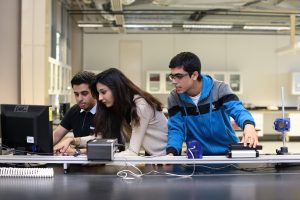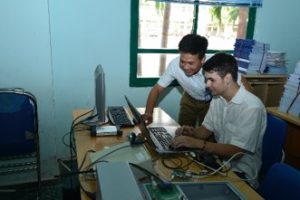Dissemination and exploitation strategy. Sustainability of the project
MARE dissemination is encompassed in the business plan, and specific promotion activities in the promotion plan. The groups targeted by MARE dissemination and exploitation include:
(1) Partner universities involved to MARE: academic (we make them aware of MARE and engage with its objectives), administrative (to gain support for MARE activities and promote its approach to curriculum development) and technical staff (they secure ICT development), students (we help them to make most of MARE opportunities);
(2) External universities and organizations: students, academic and administrative staff (we want them to participate in MARE events and actions, to use MARE learning contents, research agenda & regulation);
(3) Practitioners working in the field: companies, entrepreneurs, NGOs, agencies, municipalities (involve them into the MAREE stakeholder collaborative platforms, students&graduates, and innovative solutions for CDM);
(4) Broader stakeholder circles: government, local communities, environmental activists, amateur naturalists (use learning resources and participation in stakeholder collaborative platform events);
(5) Prospective applicants to degree programs at partner universities (consortium create interest in their career track and attract the applicants).
MARE sectoral collaborative platforms is a formal network set to disseminate and sustain MARE results after the end of the project; and promotes the engagement of professionals dealing with sustainable management and policies with academia for knowledge co-production and development of excellence in training and research. Stakeholder collaborative platforms will organise annual national seminars discussing emerging issues and possible solutions, training events and conferences.
The www portal (https://mare-project.net/ ) is the main tool for information and awareness. It contains project news, discussion section, surveying tools, repositories, links to MARE open education, and the catalogue of potential employers in partner countries, with an option for them to edit profiles and information on cooperation opportunities, invitations to students & graduates, promotion to other stakeholders. A dedicated working groups ensures that target groups are addressed. After the end of the project, the Portal will serve as the platform of stakeholder collaborative platforms.
MARE courses will be submitted to Ministries of education to enhance the national dissemination.
A newsletter will target all the groups; social media (Twitter, FB) will be exploited and connected to the site. PIs will hold responsible for media coverage of MARE events they are involved to. MARE conferences and journal special issues will enhance its visibility to academia, while stakeholder platforms-branded activities (e.g. national seminars, training events) will reach employers.
The primary goal of the sustainability plan is twofold: to further extend the use, implementation and development of the MARE project results and deliverables, and to propose specific actions which promote its further exploitation. Towards this direction, its main objectives include:
- To ensure the use of MARE project results, tools and services during project lifetime and after the completion of the project works.
- To propose actions for exploitation of the MARE project results and solutions.
- To suggest mechanisms as well as development and implementation actions for extending and improving MARE results and deliverables following the project’s end.
Hence, the sustainability plan will attempt not only to provide the MARE project activities before the end of the project (and the associated end of the EC funding), but also to enhance their functionality and increase its outreach.
Planning for the sustainability of the project should occur throughout the life of the project to maintain desired outcomes after the grant period has ended. Sustainability is defined as the ability to achieve desired outcomes and maintain the ability to continue activities over time. The sustainability of project and post-project activities is ensured from the stage of the application to activities after the end of the project.
Sustainability plan
Participants of MARE project international university consortium (EC programme Erasmus+) have agreed to pursue academic cooperation objectives during and after the end of the MARE project eligibility period. In order ensure the sustainability of collaboration ties and to advance coastal and marine sustainability objectives in the region of South-East Asia, the project partner institutions conclude the series of bilateral agreements
Disclaimer
The European Commission support for the production of this publication does not constitute an endorsement of the contents which reflects the views only of the authors, and the Commission cannot be held responsible for any use which may be made of the information contained therein.
This project No. 610327-EPP-1-2019-1-DE-EPPKA2-CBHE-JP has been funded by Erasmus+ CBHE programme of the European Union.






